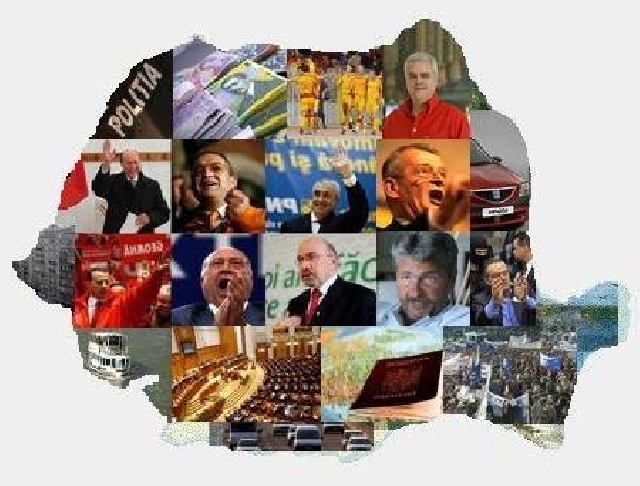The Week in Review, May 12 – 16
A roundup of the week's main stories.

Roxana Vasile, 17.05.2014, 14:00
NATO Secretary General Anders Fough Rasmussen visits Romania
NATO secretary general Anders Fough Rasmussen paid a two-day visit to Bucharest to hold talks with the Romanian officials. On Friday, Rasmussen met with President Traian Basescu, with Prime Minister Victor Ponta, Foreign Minister Titus Colarean and Defense Minister Mircea Dusa. Russia’s actions, the NATO official told Radio Romania, created a completely new security situation in Europe. For this reason the Alliance needs to adjust to the new and sophisticated type of war that Russia is leading, in which subversive activities have replaced direct aggression.
New sanctions against Russia
The EU increased, on Monday, the number of Russian and pro-Russian officials subject to sanctions. Another 13 people were added to the list of 48 officials sanctioned with asset-freezing and travelling restrictions within the EU. The list also includes Russian Deputy Prime Minister Dimitri Rogozin, whom Romanian authorities denied entry into Romanian airspace, against the background of a visit he paid to Transdniester. Bucharest’s move prompted the Russian Foreign Ministry to say that, under the circumstances, normal ties between the two countries could no longer be hoped for. Alexandr Lukashevich, a spokesman for the Russian Foreign Ministry, deemed the Romanian authorities’ most recent statements on this matter as unacceptable, and stated that ties between Romania and Russia were likely to get worse. Previously, President Traian Basescu had said about the Ukrainian crisis:
“The Russian Federation has two priorities: to federalise Ukraine and to prevent the presidential elections due on May 25th from taking place.”
Moldova to sign Association Agreement with the EU
The European Union and the Republic of Moldova will sign, on June 27, the EU Association Agreement, forged in Vilnius, last year, European Commission President Jose Manuel Barroso announced on Thursday in Brussels. Previously, an invitation in this respect had been addressed to Chisinau by the president of the European Council, Herman Van Rompuy. The Agreement promotes democratic principles, guarantees the rule of law and the fundamental liberties. The document also has economic components and provides for liberalised markets and an improved business environment. For this reason, says the pro-European prime minister of Moldova, Iurie Leanca, his country will be stronger and all people, those who live in the breakaway region of Transdniester included, will understand that the European integration is the best democratic solution.
Economic growth
Romania reported an economic growth of 3.8% in the first quarter of 2014, as compared to the previous period of last year, the highest economic growth at EU level. The preliminary estimate was announced by Eurostat, and subsequently confirmed by Minister Delegate for Budget Liviu Voinea. The Romanian official expects an economic growth for 2014 above 4%.
New healthcare legislation
A fresh piece of legislation in the field of healthcare in Romania provides for fewer hospital admissions, increasing the number of outpatient treatments. The new law will come into force on June 1. The president of the Health Insurance National Authority Radu Tibichi explains:
“We now have the budget to allow outpatients to conduct medical investigations in ambulatory. We now have doctors who can interpret these investigations, solve and monitor outpatient diseases. As regards hospital services, under the new legislation some 300 diseases are no longer admissible for treatment. In addition, there will be a complete list of diagnostics and services that are covered by hospital services, something that did not previously exist”.
Extreme weather in Romania
A new wave of heavy rain hit Romania this week, particularly southern, western and eastern regions. Hydrologists have repeatedly issued code yellow, orange and even red alerts against heavy rain and flooding for several counties. Hundreds of people were left stranded, their households flooded, dozens of villages were cut off from the power grid while traffic on many roads was disrupted.





























